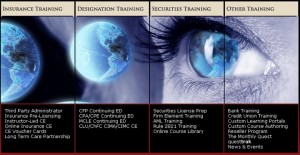First Nations Development Institute Announces $175,000 in Little Eagle Staff Fund Grant Awards
First Nations Development Institute (First Nations) has awarded grants to six Native community-based economic development organizations through its Little Eagle Staff Fund (LESF). The mission of the Little Eagle Staff Fund is to support Native community-based economic development organizations who offer unique financial services and products that promote economic development.
 “It was a very competitive year for proposals,†stated Sarah Dewees, First Nations’ Director of Research and the program officer for the LESF grant program. “We received many excellent proposals because there is both growing demand and substantial need for funding for this type of work.†First Nations initially received 47 letters of intent from those interested in applying for grant funding. From those 47, twelve groups were invited to submit full proposals. Of the twelve, six were selected for funding.
“It was a very competitive year for proposals,†stated Sarah Dewees, First Nations’ Director of Research and the program officer for the LESF grant program. “We received many excellent proposals because there is both growing demand and substantial need for funding for this type of work.†First Nations initially received 47 letters of intent from those interested in applying for grant funding. From those 47, twelve groups were invited to submit full proposals. Of the twelve, six were selected for funding.
The six organizations to be awarded grant funding under the LESF program are the Wigamig Owners Loan Fund Inc., Sitting Bull Tribal Business Information Center (TBIC), Turtle Mountain Community Development Financial Institution, the Oregon Native American Business & Entrepreneurial Network (ONABEN), Katikitegon Community Development Corporation, and the Ho-Chunk Nation. The grants range in value from $12,000 to $40,000, and the projects include financial education, loan funds, and entrepreneurship development. Three grants will be given to help groups start community development financial institutions (CDFIs), two grants specifically support financial education programs, and one grant will support an entrepreneurship training program.
“We are proud to be able to support these innovate economic development organizations that play such an important role in creating an ‘enabling environment’ for economic development on Indian reservations and in other Native communities,†stated Michael E. Roberts, President of First Nations Development Institute. “We are thankful to our funders who have supported this grant program.†The Little Eagle Staff Fund is currently capitalized by Bank of America, the Johnson Scholarship Foundation, the Washington Mutual Foundation, and a fourth partner, as well as through the generous support of First Nations’ individual donors.
The focus of the LESF projects is to educate individuals about successful financial management techniques with the broader implication that this knowledge will support Native individuals and communities to become self-reliant and economically prosperous.“Our mission is to change our economic landscape one family at a time by providing the essential educational components related to making sound financial decisions,†stated Chrystel Cornelius, Executive Director for the Turtle Mountain CDFI. “We are also creating an outlet to provide capital and lending products that will increase community and individual assets and help build wealth within our community.â€
First Nations Development Institute is a national American Indian-led 501(c)(3) non-profit organization that was founded in 1980. Through a three-pronged strategy of educating grassroots practitioners, advocating systemic change, and capitalizing Indian communities, First Nations Development Institute is working to restore Native control and culturally-compatible stewardship of the assets they own – be they land, human potential, cultural heritage, or natural resources – and to establish new assets for ensuring the long-term vitality of Native communities. First Nations was founded with the belief that when armed with appropriate resources, Native peoples hold the capacity and ingenuity to ensure the sustainable economic, spiritual, and cultural well-being of their communities.
Via EPR Network
More Financial press releases

 A number of lenders announced cuts to their mortgage rates following the base rate announcement – which may come as a relief to prospective homeowners or existing homeowners looking to remortgage, following many lenders’ reluctance to respond to the last base rate drop.
A number of lenders announced cuts to their mortgage rates following the base rate announcement – which may come as a relief to prospective homeowners or existing homeowners looking to remortgage, following many lenders’ reluctance to respond to the last base rate drop.





 “Some may be tempted to keep a close eye on their bank’s finances, waiting to withdraw all their money at the first sign of trouble,†said a spokesperson for the debt management company. “Of course it’s vital to protect your investments, but it’s also important to understand the extent of the protection offered to normal savers.â€
“Some may be tempted to keep a close eye on their bank’s finances, waiting to withdraw all their money at the first sign of trouble,†said a spokesperson for the debt management company. “Of course it’s vital to protect your investments, but it’s also important to understand the extent of the protection offered to normal savers.â€














